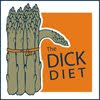I’ve often spoke of how confusing nutrition can be – one week we hear one news item and the next week the complete opposite. Well, here we go again. Last week the local paper that publishes my articles carried a syndicated article from a Dr. Komaroff “Coconut Oil No Substitute For Healthier Vegetable Oils.” Of course I needed to respond!
If you’ve been reading my articles for the last few years you know this is exactly the opposite of what I’ve been saying. The underlying premise of that particular article is questioning why coconut oil is catching on among the health conscious given that we “know” that saturated fat is bad for us and that coconut oil is one of the highest in saturated fat.
Let’s start with the basics – why our body needs fat and what the different types of fat are and what they do in the body. The bottom line – we need fat but we need the right kind. It is this “right kind” where we find the disagreements.
Fat is used to build our cell membranes and is the starting point for many hormones. It is the saturated fat that is critical to cell membrane structure and ultimately the health of the cell. A less than optimal structure will lead to a less than optimal cell. Hormones direct most of the body’s critical functions. Not enough fat, not enough hormone production. Fat provides the body with energy, and saturated fat is the main source for the heart. Just as glucose fuels the brain, saturated fat fuels the heart.
Fat is required for our body to absorb the fat soluble vitamins – A, D, E, and K. If we are not eating the right fats our body will not utilize these vitamins. Ever wonder why there seems to be this Vitamin D crisis in the country? Everyone you know is told they are Vitamin D deficient. Perhaps they are not getting sufficient fat to utilize the vitamin. This is why I am particularly fond of traditionally produced cod liver oil. It contains the essential fatty acids (Omega 3) that the body needs plus natural Vitamins A and D. All together in one package as nature designed.
Fat regulates body temperature and cushions the organs. It is essential for infant brain development and for the female reproductive system. A woman will not ovulate unless she has sufficient body fat.
There are two types of fats – saturated and unsaturated (further defined as monounsaturated and polyunsaturated). Saturated fats are solid while unsaturated fats are liquid at room temperature. Unsaturated fats are much more sensitive to light and heat. When heated they oxidize forming “free radicals” that damage cells and are linked to a variety of diseases including cancer and heart disease. This is the whole key to fats! Saturated fats can “take the heat” so they are useful in cooking. This is why I recommend butter and coconut oil. These fats will not be oxidized by cooking. It is the unsaturated fats, such as (yes) olive oil, corn oil, vegetable oil, soybean oil, cottonseed oil, canola oil that are damaged when cooking. Olive oil when used in salad dressings and not heated is very healthy, so continue to use it in that manner. Please note the health statistics. Since we’ve been encouraged to use vegetable oils for heart healthy reasons their consumption has increased and so has heart disease!
Another fat we hear of are trans fatty acids. These are formed during the process of hydrogenation. Polyunsaturated oils, usually corn, soybean, safflower, or canola, are heated to high temperatures and injected with hydrogen atoms. During the heating process the nutrients in the oils are destroyed, the oils become solid and have oxidized. Trans fats have been linked to many ailments, including cancer, heart disease, and reproductive problems. Trans fats are commonly found in commercial baked goods, cookies, crackers, margarines, vegetable shortenings, and processed dairy products.
Back to coconut oil. First if you read the aforementioned article closely the author does not ever come up with a reason coconut oil is bad. His only defense is, “Although it seems like it has positive effects on cholesterol, we don’t really know how coconut oil affects heart disease.” This seems a bit odd as the whole argument against saturated fats is that they cause cholesterol to increase which causes heart disease. If you read my articles you know that is a questionable claim as well. But regardless, if you follow his logic, since coconut oil has positive effects on cholesterol, it should therefore have positive effects on heart disease. So how could that be bad?
Here’s the rest of what he didn’t tell you about coconut oil. It is rich in lauric acid - an antimicrobial, antibacterial, antiparasatical, and antiviral substance. It supports thyroid function, skin, heart health, and weight loss. The medium chain fatty acids in coconut oil are converted in the body into quick energy, and are not stored as fat. Coconut oil is the best oil for heating. It can be used in baking and is the best choice for light stir frying or frying.
Bernard Rosen, PhD is a Nutrition Consultant and Educator. He has offices is in Thiensville and Glendale. To learn more or to schedule an appointment, call (262) 389-9907, e-mail bernie@brwellness.com or go to www.brwellness.com.
.jpg)


